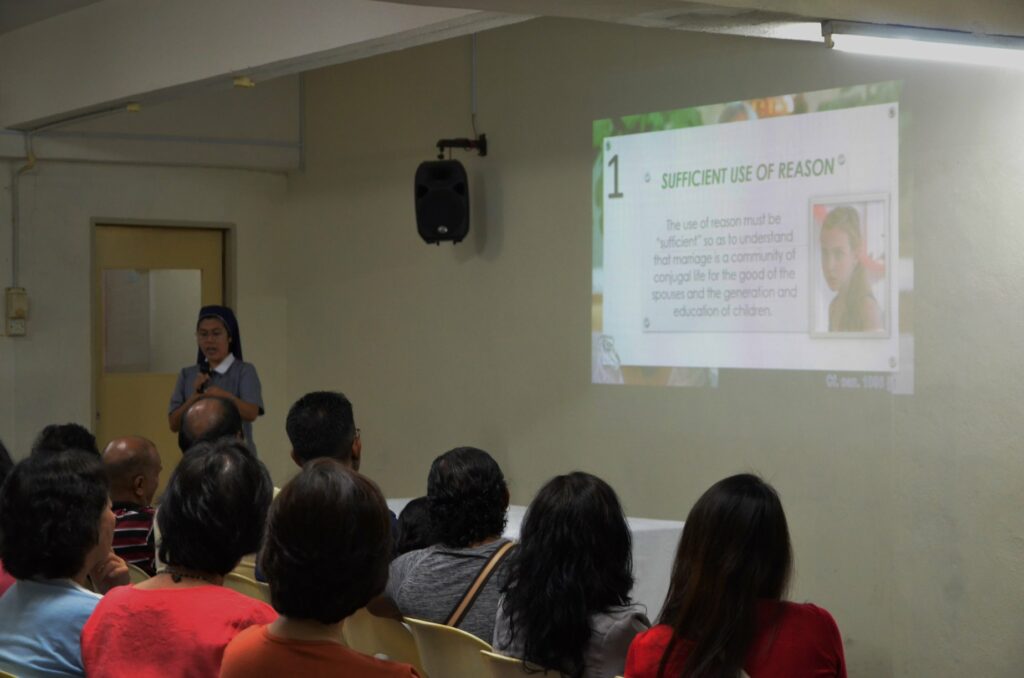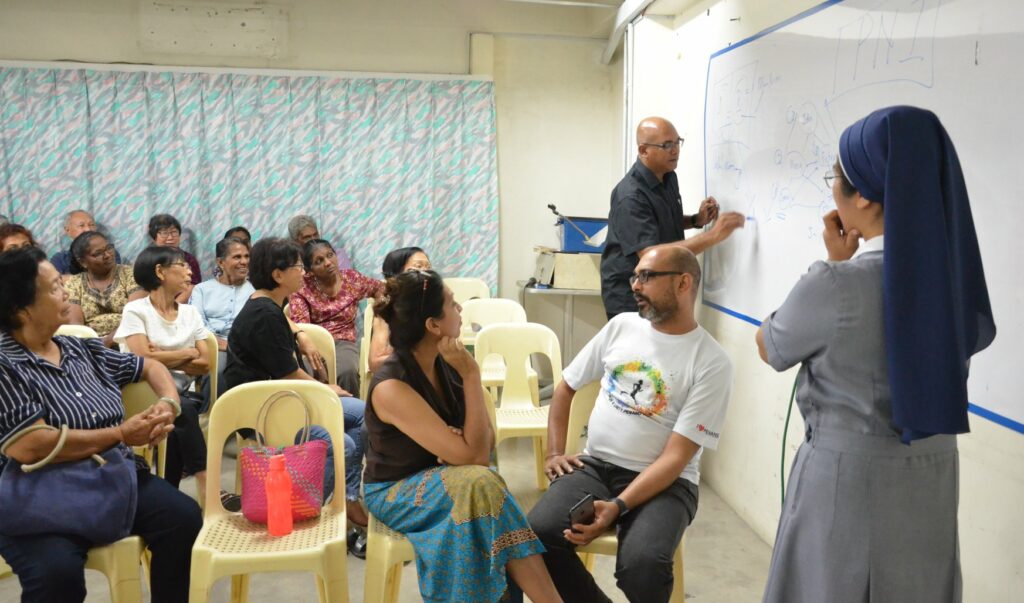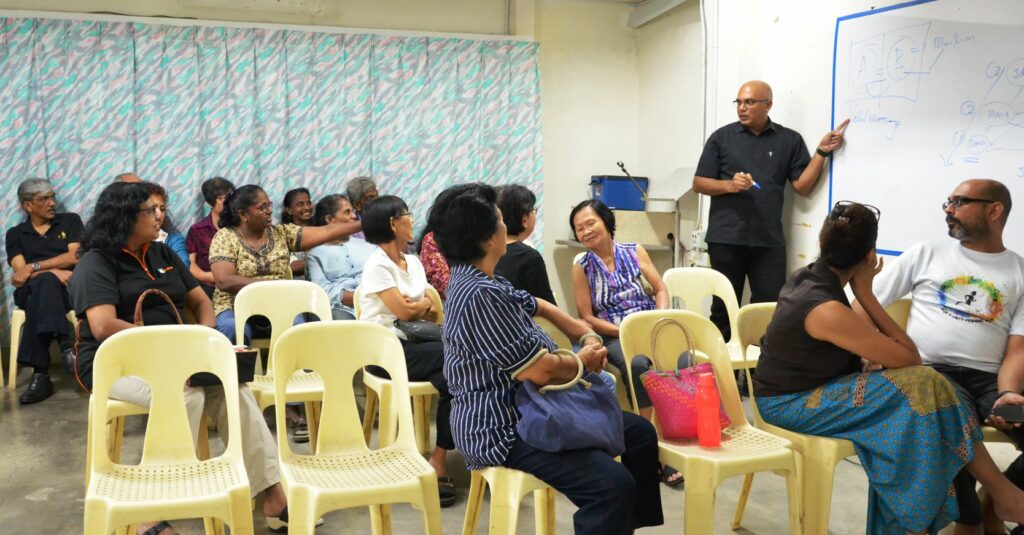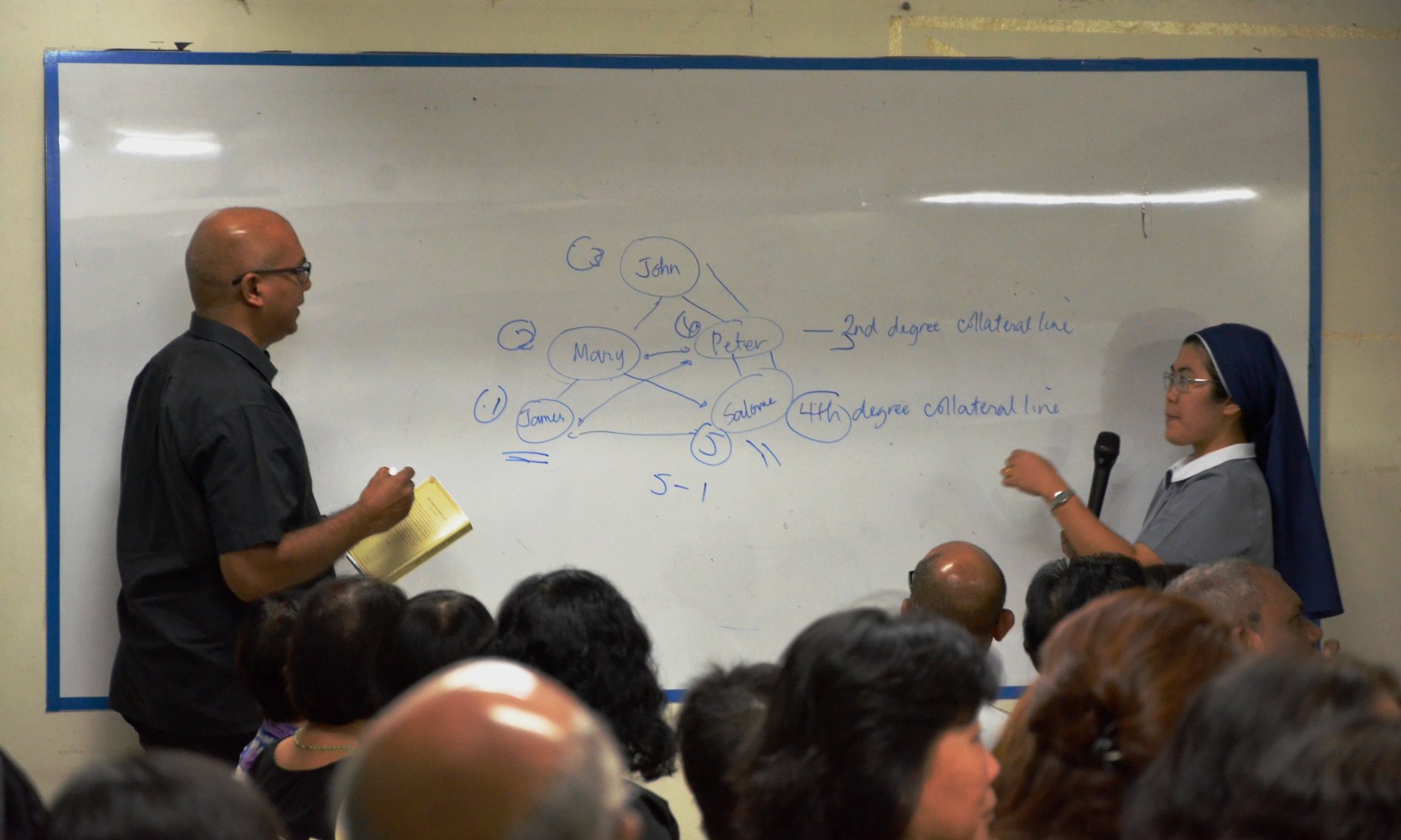Part 2: What Makes a Marriage Valid?
Consent! It is an irrevocable act of will by a man and a woman to give and accept each other mutually and freely without force or conditional. If the consent is found to be defective, then the marriage is not valid. The validity is based on the following:
A. Psychosomatic Capacity

1. Sufficient Use of Reason (c. 1095 §1): The use of reason must be sufficient so as to understand that marriage is a community of conjugal life for the good of the spouses and the generation and education of children. At the age of 7, a person is presumed to have the use of reason.
2. Due Discretion of Judgment (c. 1095 §2) It refers to the capacity to intend and to will. A person who has due discretion of judgment understand the duties that are to be assumed, and freely chooses to assume those understood duties.
3. Capacity to assume the essential obligations of marriage (c. 1095 §3). The essential obligations of marriage concerns the procreation and education of children, good of the spouses (marital fidelity)
B. Cognitive Capacity
1. Freedom from Ignorance (c. 1096 §1): minimal knowledge of marriage, that is, the essential elements of the object of the act or its substance
2. Freedom from Error (c. 1097 §§1-2): correct knowledge either about the person or about the quality of the person, which is directly and principally intended
3. Freedom from Fraud/Deceit (c. 1098) not influenced by fraudulent facts about the quality of the other party, which of its very nature seriously disrupt the partnership of conjugal life
C. Volitive Capacity
1. Full Consent (c. 1101 §2) Either or both of the parties must not exclude, by a positive act of the will, marriage or any or all of the essential properties of marriage.
2. Certain Consent (c. 1102 §1) Marriage consent must not be made dependent on the verification of the circumstance (future condition).
3. Free from Force and Fear (c. 1103) One cannot validly enter marriage by force or with grave fear which seriously compromises a person’s marital freedom. The force exerted is irresistible and fear is grave, extrinsic and causative.
The consent is part of the Tripod of marriage that constitutes validity. The other two are legal capacity and canonical form.
The legal capacity requires freedom from 12 impediments
- Age (according to Canon law it is 16 for man and 14 for woman) but the church in Malaysia 18 years for both man and woman. Until the age of 21, they will still need legal consent of parents.
- Impotence (ability to consummate)
- Previous bond (already married)
- Disparity of cult (requires dispensation )
- Sacred orders
- Religious
- Abduction
- Crime (killing of spouse to remarry)
- Consanguinity (1st and second cousins)
- Affinity
- Public propriety
- Legal relationship (as in the case of adoption)

The Canonical Form requires the following since marriage is a public institution:
- Ministers ( the couple)
- Ordained official witness or lay official witness (appointed lay person),
- Two common witness with sufficient reason
Notes:
- extraordinary form ( if there is no qualified witness)
- binding force (at least one is a baptized Catholic)
- dispensation form in the case of mixed marriages (other Christian denomination) or dispensation for disparity of cult (of different religion- in this case one is able to get married in a temple and get dispensation to be recognized as a valid marriage).


